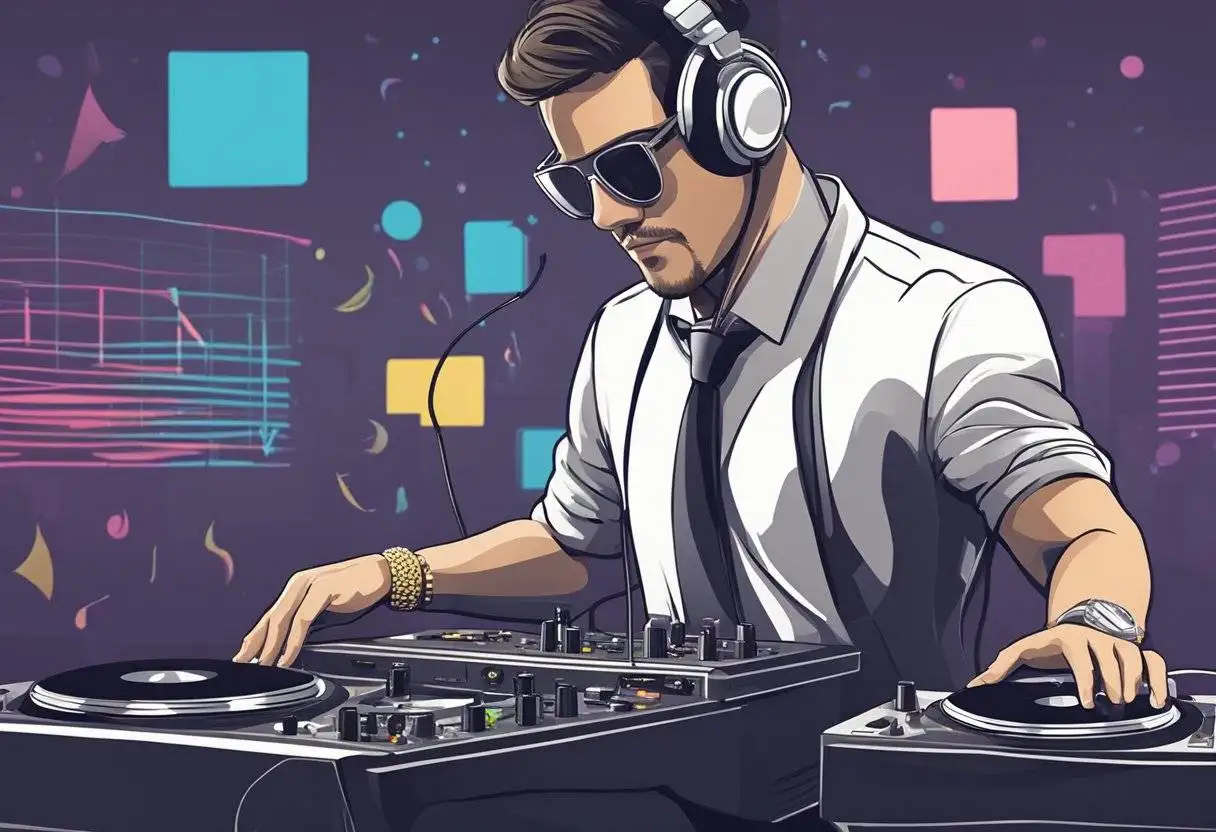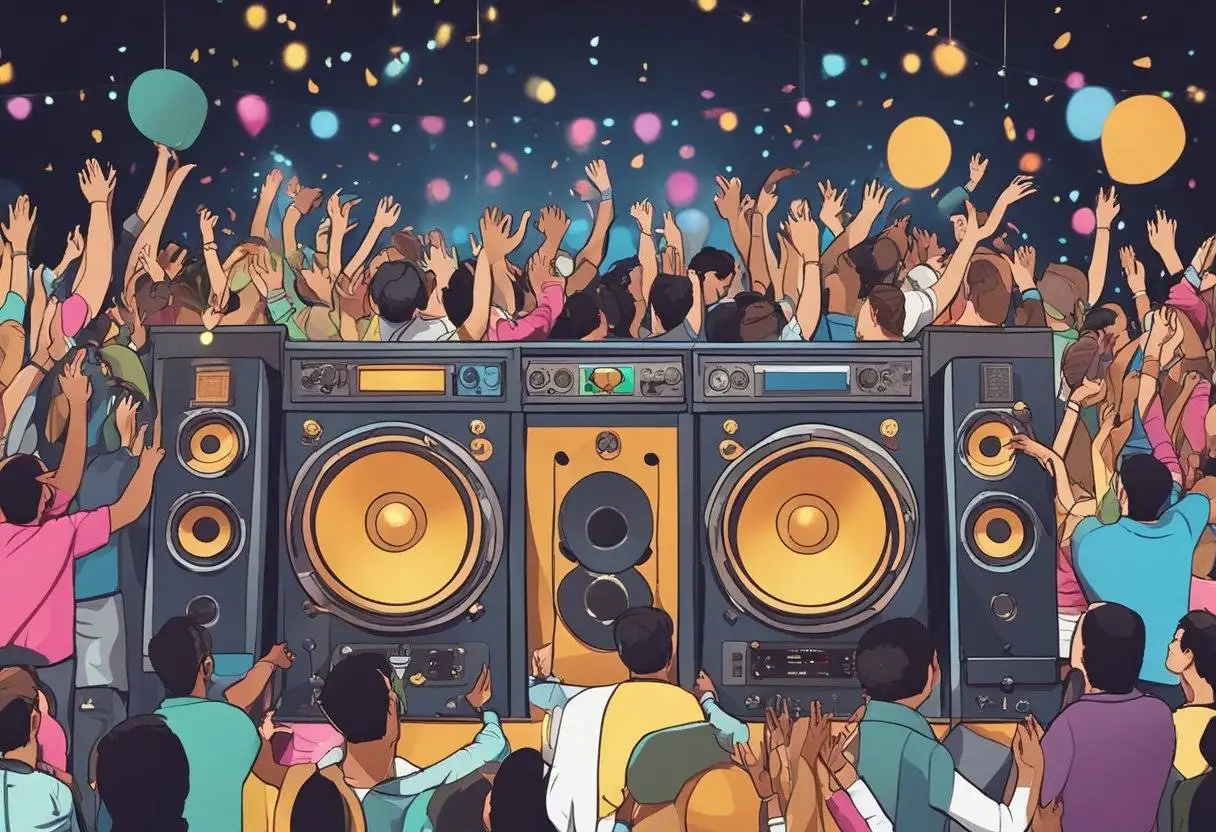When planning a wedding, many couples envision a celebration filled with laughter, dancing, and memorable music. As the vibrancy of the reception largely relies on audio elements, the role of a DJ becomes crucial. To create a lively atmosphere, a DJ must manage sound levels appropriately, working within the range that encourages guests to dance and enjoy themselves, without causing discomfort or violating venue restrictions.

Decibels, the units measuring the intensity of sound, are at the center of this balance. Many wedding DJs typically play music between 95 and 105 decibels to animate a festive environment. However, the specific sound levels suitable for a wedding may vary depending on factors such as venue rules, size of the space, and the number of guests—underscoring the importance of understanding decibel restrictions and the capability of the DJ’s equipment to maintain an optimal volume. Managing sound responsibly ensures that the entertainment is both enjoyable and compliant with sound regulations, preserving the joyous tone of the event.
Key Takeaways
- DJs typically play within a range of 95-105 decibels to encourage a dynamic dance floor.
- Venue sound regulations and guest comfort necessitate careful management of volume levels.
- Effective sound system setup by the DJ heightens the overall wedding entertainment experience.
Understanding Decibels at Weddings
In my experience with event planning, I’ve learned that understanding the decibels, or dB, at a wedding is crucial for both guest comfort and venue compliance.
What Are Decibels?
Decibels represent the intensity of sound. One decibel is the faintest sound the human ear can detect. As the dB level rises, so does the loudness or volume of the sound. At weddings, managing these levels is essential for enjoyment and safety.
Average Decibel Levels for Wedding Events
Typically, wedding DJs play music ranging between 95 and 105 decibels during dance segments. The sound levels during dinner might be lower to allow comfortable conversation, around 70 to 85 dB. These average levels ensure the music is energetic enough for dancing while allowing guests to interact without strain.
Decibel Limits at Wedding Venues
Many venues have a set decibel limit to adhere to local sound ordinances. These limits often fall between 80 and 90 dB. It’s my responsibility to confirm these limits with the venue and inform the DJ accordingly to manage the sound level and avoid fines or abrupt interruptions if a sound limiter is triggered.
Wedding DJ Equipment and Sound Management
I understand the importance of delivering superb audio quality at weddings while respecting volume limits. In the nuanced world of wedding DJ equipment and sound management, selecting the right system and managing its output is crucial.
Selecting the Right PA System
Criteria for PA Selection:
- Power Handling: I determine the power needed based on venue size and expected guest count, ensuring the system can handle a range from 85 to 95 decibels for a moderate sound level to over 100 decibels for a full dance floor.
- Portability and Size: I choose a system that not only fits the venue but is also transportable, considering that mobility is key for a wedding DJ.
Essential Sound Equipment for a Wedding DJ
Must-have sound equipment includes:
- DJ Controller/Mixer: I ensure it’s compatible with my computer or tablet, providing comprehensive control over music mixing.
- Turntables/CDJs: For playing physical media, which some DJs, like me, might prefer for its tactile experience.
- Microphones (Wired or Wireless): Essential for announcements and toasts.
- Speakers: Crucial to deliver clear sound; I choose based on clarity, range, and power to match the PA system’s capabilities.
- Headphones: Critical for cueing and mixing tracks seamlessly.
While a comprehensive DJ equipment list can be extensive, these are core components I always include in my setup.
Managing Volume and Sound Limits
I adhere to noise limits as set by venues, often employing a sound limiter to automatically keep volumes in check. Here’s how I control the sound:
- Sound Checks: I conduct pre-event sound checks, adjusting settings for optimal sound delivery within established limits.
- Volume Control: During the event, I maintain a vigilant approach to volume control, making adjustments as necessary to match the dynamic of the room and audience response.
By respecting noise limits and managing the sound equipment adeptly, I ensure the wedding atmosphere is both vibrant and compliant with regulations.
Ensuring Compliance and Responsible Entertainment

As a professional DJ, I’ve encountered venues with strict noise restrictions and varying acoustics which demand a careful approach. My experience helps me navigate these challenges responsibly, while still delivering a vibrant entertainment experience.
Each venue I perform at may fall under local authority regulations concerning noise levels to prevent noise pollution. I make it my priority to be aware of these restrictions, which often stipulate the maximum decibel level allowed. For instance, if a venue requires music to stay within 85 to 95 decibels, I adhere to this limit to avoid complaints and potential violations of the venue’s licence. In some cases, I’ve noted that venues may have noise limits that dictate noise should not exceed the existing background noise level by more than +5 dB for events, to avoid being deemed a statutory nuisance.
Working with Venue Acoustics
Understanding the acoustics of a venue is crucial to delivering a quality audio experience without overstepping decibel thresholds. Venues with hard surfaces may reflect sound and create louder perceived volumes. I actively communicate with the site managers to understand the venue’s sound profile and make adjustments, such as speaker placement and volume control, to ensure the sound quality is top-notch without being overpowering.
Tips for Avoiding Sound-Related Complaints
Having an open dialogue with the venue and knowing the sound limiter settings, which are commonly set around 80 to 90 decibels, allows me to prevent sound-level-related complaints. Here are some specific tips I’ve developed:
- Sound Check: Conduct a sound check before the guests arrive to adjust levels accordingly.
- Volume Management: Monitor decibels throughout the event using a sound level meter.
- Check In with Guests: Occasionally check in with guests about the volume, especially those seated closest to speakers.
By combining my understanding of sound dynamics and regulatory compliance, I ensure every event is memorable for all the right reasons.
Creating the Perfect Wedding Atmosphere
Creating an unforgettable wedding atmosphere involves balancing the energy of live performances with the precision of recorded tracks, all while maintaining a volume that enhances the celebration without overpowering it.
Cater to the Crowd without Excessive Volume
To ensure a memorable experience for wedding guests, I adhere to a volume range during dancing that sits comfortably between 95 and 105 decibels. This is crucial to foster an environment that allows for both engagement and conversation, especially considering that typical crowd noise at parties can be quite high. A wedding DJ’s goal is to complement the festive spirit of the wedding day without reaching levels that might detract from guests’ enjoyment or violate the live music venue’s sound limits.
Balancing Live Music and Recorded Tracks
While the live music of a wedding band can bring a unique vibrancy to the ceremony, incorporating recorded tracks allows for a broader variety of styles and songs throughout the event. I strive to blend the two harmoniously, understanding the acoustics of the venue, and adjusting the decibels accordingly. Recorded tracks ensure that every favorite song on the guest list makes an appearance.
Integrating Requests into the Setlist
Being a wedding DJ means more than just playing music—it involves curating an experience. I take the time to weave requests from the wedding party and guests into the setlist, ensuring that each chosen song aligns with the event’s cadence. This not only personalizes the wedding entertainment but also keeps the energy high, inviting everyone onto the dance floor to celebrate.
Frequently Asked Questions

In my experience, understanding decibel levels is important for the enjoyment and safety of guests at a wedding. Below, I answer some common questions related to the sound output of DJs at these events.
What is the typical decibel range for music played by a DJ at a wedding?
For most wedding receptions, DJs play music within a range of 95 to 105 decibels. This range is comfortable for dancing and enjoying the music without it being overly loud.
How do decibel levels at weddings compare to everyday sounds?
Decibel levels at weddings are significantly higher than everyday conversation, typically around 60 dB. Wedding music levels are more on par with the sound of a typical disco, which ranges from 100 to 110 dB SPL (Sound Pressure Level).
At what decibel level can music become harmful to hearing, and how is this relevant to wedding DJ settings?
Prolonged exposure to sounds at or above 85 decibels can potentially damage hearing. Since wedding DJs often play music above this threshold, it’s relevant to consider the duration of the event and the proximity of guests to the speakers.
What is the safe decibel level for guests at a wedding reception?
The safe decibel level for guests depends on the duration of exposure. For instance, an 85-decibel noise limit can be appropriate for longer events, while a shorter event may safely accommodate higher levels, as long as they don’t exceed 94 dB—which the World Health Organization considers safe for up to an hour.
How does the decibel level of a live wedding band differ from that of a DJ?
Live wedding bands can reach a range of 95 to 105 dB, similar to that of a DJ. The exact level can depend on the number of instruments and the venue size.
What factors should a wedding DJ consider to manage volume levels appropriately?
I would consider the venue’s size, the number of guests, any noise regulations in place, along with the presence of sound limiters that may be installed at the venue. Being aware of these will allow a DJ to manage volume levels that are both enjoyable and safe.
